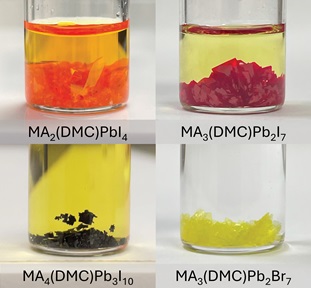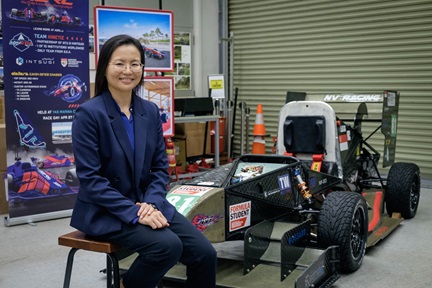Scaling up to the future
Combining academic expertise and industry know-how, SCALE@NTU aims to accelerate innovation in emerging technologies to meet the needs of smart cities.

AI makes services and cities smart.
In the Internet of Things, having an edge is everything—edge computing, that is. For instance, a surveillance camera network that has to transmit data to a centralised server for analysis will eat up enormous amounts of bandwidth; on the other hand, a network that can perform analytics at or near the source of the data—the edge—will run much more efficiently.
Edge computing will make artificial intelligence (AI)-powered surveillance cameras even smarter, allowing multiple cameras to recognise a person from different angles in real time without transmitting the data to a backend server, says Prof Ong Yew Soon, Chair of NTU’s School of Computer Science and Engineering (SCSE).
This is just one project that researchers are working on at the Singtel Cognitive and Artificial Intelligence Lab for Enterprises (SCALE@NTU), a S$42.4 million (US$32 million) corporate laboratory jointly established by NTU, telecommunications company Singtel and the National Research Foundation Singapore in December 2017. SCALE@NTU aims to boost Singapore’s research and development efforts in AI, data analytics, robotics and smart computing.
“Emerging technologies are changing and even disrupting the way people work in many different sectors,” says Prof Ong, who is a Co-Director of SCALE@NTU. “As a world-leading university with globally recognised research and technologies in AI and other domains, NTU always strives to join hands with government and corporate partners to push the frontiers of technologies for enterprises and industry, and to make a huge impact on Singapore and beyond.”
An intelligent partnership
SCALE@NTU, a five-year public-private partnership, is designed to bring together NTU’s capabilities in research and innovation and Singtel’s product development experience and domain knowledge. “We have world-renowned academics working on AI, data analytics, robotics and smart computing at NTU, and we foresee the high impact that can be generated when we work with leading industry partners to apply these emerging technologies to businesses,” says Prof Cong Gao, a professor in SCSE and Co-Director of SCALE@NTU.
The aim is to use this synergy to translate research outcomes from NTU (edge computing methods, for example) into market-leading and differentiating technologies and products (such as smart camera networks). These products could be used to improve public safety, smart urban solutions, transportation, healthcare and manufacturing.
“Public-private partnerships can lead to innovations and effective services that could benefit Singapore’s economy and the lives of Singaporeans,” says Prof Ong. “In SCALE@NTU, we have a perfect platform for talent from NTU and Singtel to exchange creative ideas and know-how. These will be interwoven to generate novel products.”
Transforming the customer experience
In addition to edge computing, SCALE@NTU researchers are also developing new methods for data analytics. The field has myriad commercial applications, since just about every company wants to be able to mine data to better understand customers and respond quickly to their needs.
Prof Cong, whose academic interests are mainly in data science, will be leading research efforts into anticipatory analytics and services. In contrast to predictive analytics, which makes predictions of consumer behaviour based on past data, anticipatory analytics goes a step further, taking into account current, up-to-date data to anticipate changes in the market and how consumers react.
Based on a better understanding of consumers’ behaviour and intentions, Prof Cong and his team want to build automatic personalised services that can be applied in many different scenarios, including smart recommendations and targeted business promotions, he says.
“Anticipatory analytics and services will enable enterprises to go beyond predicting, into real-time anticipation,” says Prof Cong. “Our research essentially combines AI, big multimodal data, and hyper-connectivity to deliver next-generation personalised customer experiences.”
The bigger picture: Towards a smart nation
According to SCALE@NTU’s research and development roadmap, the first products from the joint laboratory are expected to launch within the next few years, says Prof Ong. “SCALE@NTU hopes to inspire talent from NTU and Singtel to seamlessly work together. We will provide support and resources to accelerate the innovation process,” he explains.
But products will not be the only tangible outcome of the initiative. From a wider perspective, SCALE@NTU is also aligned with Singapore’s national priorities. In the spirit of Singapore’s Industry Transformation Programme, the joint laboratory is expected to help to deepen the partnership between the government, industry and academia, says Prof Ong, to ultimately help firms such as Singtel better focus on innovation and on developing their businesses globally.
SCALE@NTU will also play a role in Singapore’s push towards integrating smart city technologies with daily life. For one, the joint laboratory will enhance the local technical talent pool by grouping together and training researchers, engineers and students from NTU and Singtel, says Prof Cong. For another, the technologies developed will go towards addressing the host of complex urban challenges of smart cities all around the world.



.tmb-listing.jpg?Culture=en&sfvrsn=29c7e020_1)
.tmb-listing.jpg?Culture=en&sfvrsn=332749b0_1)
.tmb-listing.jpg?Culture=en&sfvrsn=55153609_1)

